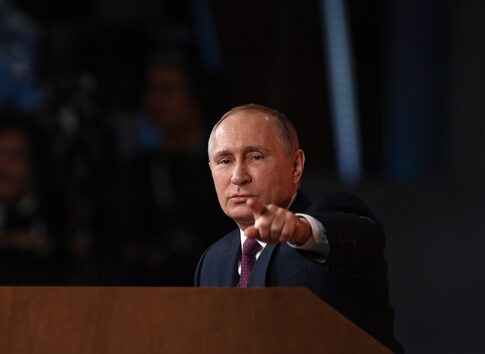Germany has launched its first permanent foreign troop deployment, marking a significant evolution in Germany’s military posture. The move signals Germany’s renewed commitment to NATO’s collective defense and represents a dramatic departure from its decades-long reluctance to project military power abroad. How might Russia respond to German troops stationed near its borders?
Germany Breaks Post-War Military Tradition
Germany has activated its first permanent foreign military deployment since World War II, marking a seismic shift in the nation’s defense policy. The decision comes amid escalating concerns about Russian aggression under President Putin, particularly following the full-scale invasion of Ukraine in 2022.
The newly formed 45th Armored Brigade was formally activated during a ceremony near Vilnius, Lithuania, under the command of Brigadier General Christoph Huber. German Defense Minister Boris Pistorius emphasized the historic nature of the deployment, stating, “This is the first time that we have permanently stationed such a unit outside Germany.”
History repeats itself
Germany sends 5,000 troops to Lithuania in first permanent troop deployment out of borders — and at Russia's doorstep — since WWII pic.twitter.com/BLRRs7oD8Q
— Ignorance, the root and stem of all evil (@ivan_8848) April 1, 2025
Reinforcing NATO’s Eastern Flank
The brigade will eventually host 5,000 troops in Lithuania, which borders the Russian exclave of Kaliningrad and Belarus, a close Moscow ally. Currently, only 150 German soldiers are stationed in Lithuania, with plans to increase this number to 500 before reaching full operational capability by 2027.
Brigadier General Huber outlined the mission clearly: “We have a clear mission: to ensure the protection, freedom, and security of our Lithuanian allies on NATO’s eastern flank. In doing so, we also protect NATO territory — and Germany itself.” This deployment aligns with NATO’s strategy of deterrence through forward defense, positioning combat-ready forces closer to potential flashpoints.
Germany has launched a permanent foreign troop deployment on NATO’s eastern flank.https://t.co/BfM7HgQGlQ
— POLITICOEurope (@POLITICOEurope) April 1, 2025
Germany’s Military Transformation
The Lithuanian deployment represents just one aspect of Germany’s broader military transformation. Defense Minister Pistorius has suggested expanding the Bundeswehr’s personnel target to 230,000, up from the current goal of 203,000, to meet NATO’s 2025 capability targets.
Germany’s military investment has increased dramatically since Russia invaded Ukraine, with Chancellor Olaf Scholz is establishing a £420 billion infrastructure fund to support defense spending. This shift enabled Germany to meet NATO’s 2% of GDP defense spending benchmark for the first time in decades, though sustaining this level has created political challenges, including a budget dispute that contributed to the collapse of Scholz’s three-party coalition.
German military leadership has emphasized the urgency of these preparations, with General Carsten Breuer stating, “We are threatened by Russia. We are threatened by Putin. We have to do whatever is needed to deter that. It’s not about how much time I need; it’s much more about how much time Putin gives us to be prepared.” This deployment represents a definitive response to that perceived threat, cementing Germany’s evolution from a reluctant military power to a key defender of NATO’s eastern boundaries.

